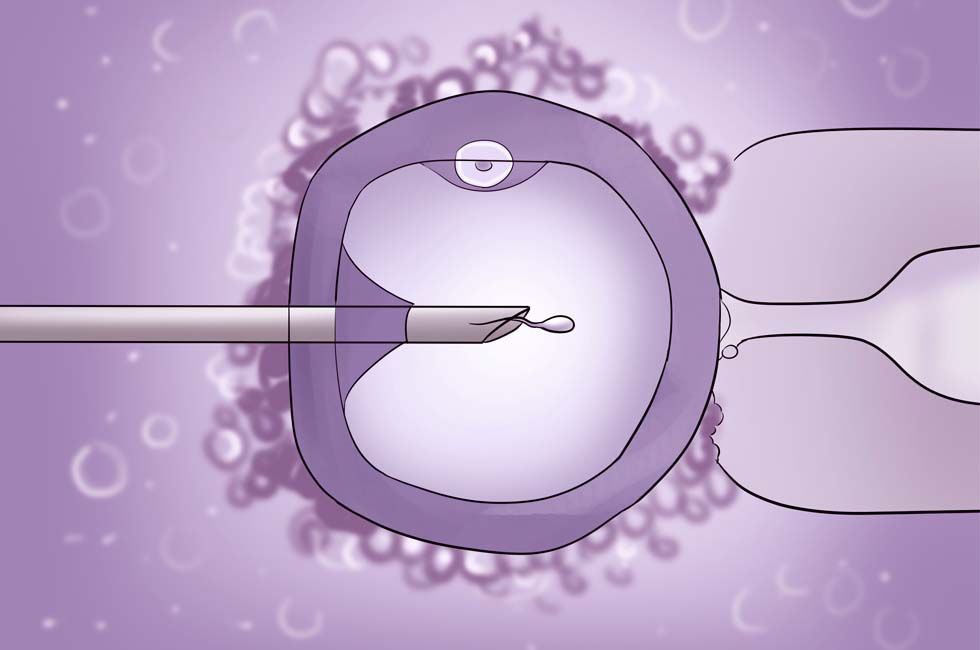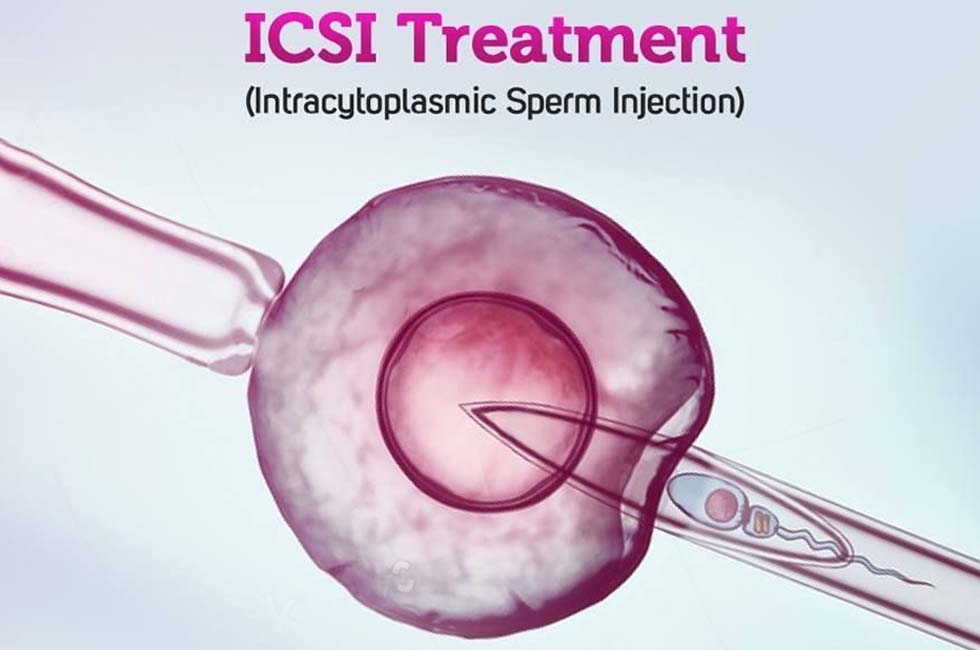ICSI
ICSI ( Intracytoplasmic Sperm Injection ) The full form of ICSI is Intracytoplasmic Sperm Injection. In IVF, the eggs and sperms are put together in a dish and left for spontaneous fertilization in the laboratory. Whereas, in ICSI, each egg is injected with a single sperm using a micromanipulator, and thus the fertilization rates are better. ICSI is generally done when the male partner sperm count or motility is very low. It is also done in women where the number of eggs retrieved is very less.
Intracytoplasmic sperm injection (ICSI) is a conventional IVF procedure where fertilization of the egg is achieved through a different approach. Generally, fertilization occurs when a sperm attaches itself to the egg and penetrates through the outer layer. For some reason, the sperm may fail to penetrate the egg. In such a condition, ICSI can be done along with IVF to achieve pregnancy. During ICSI, a single sperm is picked and is injected directly into the egg.
ICSI is performed by an experienced embryologist using specialized instruments. Though ICSI is a precise procedure but still for fertilization to occur, required cellular events need to take place.
Who needs ICSI ?
ICSI should be considered in the cases of male factor infertility with an abnormal semen analysis. Reasons include:
- - Previous poor fertilization with IVF
- - Variable Sperm counts
- - Unexplained infertility
Many patients choose to undergo the ICSI procedure just in order to maximize success rates.
ICSI Procedure/ Technique
ICSI procedure is complicated and is performed by a skilled embryologist. It is done along with IVF in a laboratory.
The steps of ICSI procedure -
- 1. A matured sperm is retrieved in a specialized pipette.
- 2. A delicate and thin needle is used to immobilize and pick a sperm.
- 3. The needle is then used to insert the sperm into the cytoplasm of the egg.
- 4. After injecting the sperm, the needle is carefully removed.
- 5. The next day eggs are checked for fertilization.
Once fertilization occurs, the ICSI procedure is complete. The next step involves transferring the embryo to the woman's uterus in two to five days. You will wait for two weeks to take a pregnancy test. Your fertility doctor will do blood tests and ultrasound to confirm pregnancy and if implantation has occurred normally.
What is the Success Rates of ICSI ?
The success rates of IVF and ICSI are quite similar. In fact, that is one of the reasons why ICSI IVF success rates are no longer presented individually. With ICSI, pregnancy rates are generally around 60% to 80% although they can vary on a case to case basis.


